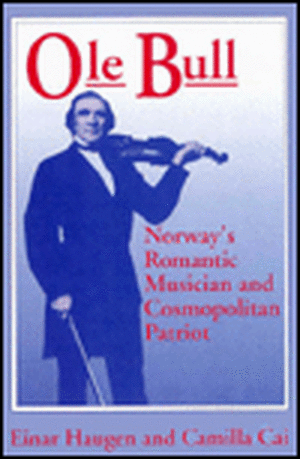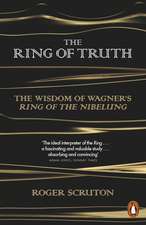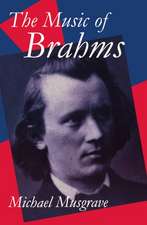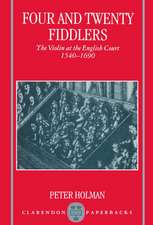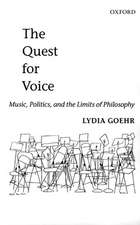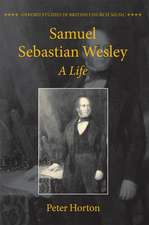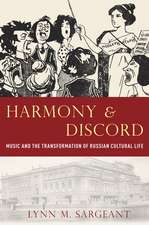Ole Bull: Norway'S Romantic Musician And Cosmopolitan Patriot
Autor Einar Haugenen Limba Engleză Hardback – 15 apr 1993
A child prodigy, Bull was admitted to the Bergen orchestra as first violin at the age of eight. He soon was idolized on both sides of the Atlantic for his superb improvisations and his ability to play the violin polyphonically. Though he was hailed as “the Paganini of the North,” some critics labeled him a charlatan for his apparently magic tricks on the violin.
Bull counted among his friends the great names of his era: Schumann and Lizst, Emerson and Wagner. Longfellow and Hans Christian Andersen modeled characters on him, and he was in part the inspiration for Ibsen’s Peer Gynt.
Although he spent most of his adult life abroad, Bull was a tireless promoter of Norwegian art and culture. His concert improvisations were rooted in his native slåtter (folkdance tunes), and he modified his own instrument using the Norwegian Hardanger fiddle as a model. By mid-century, Bull realized his dream of establishing a national theater in Bergen. He gave Henrik Ibsen a start in theater management, employed the poet Bjørnstjerne Bjørnson, and promoted the music of Edvard Grieg. His attempt to establish a Norwegian colony, “Oleana,” in the United States, however, failed through poor management.
The words of the poet Aasmund Vinje, “That surely would be a man to write a book about,” have been taken to heart by authors Einar Haugen and Camilla Cai. In addition to providing the first comprehensive listing of Bull’s works (with full descriptions of all known sources), analyses of his compositions and their influences, and reviews of his performances, this biography gives life once again to a fascinating and flamboyant figure.
Bull counted among his friends the great names of his era: Schumann and Lizst, Emerson and Wagner. Longfellow and Hans Christian Andersen modeled characters on him, and he was in part the inspiration for Ibsen’s Peer Gynt.
Although he spent most of his adult life abroad, Bull was a tireless promoter of Norwegian art and culture. His concert improvisations were rooted in his native slåtter (folkdance tunes), and he modified his own instrument using the Norwegian Hardanger fiddle as a model. By mid-century, Bull realized his dream of establishing a national theater in Bergen. He gave Henrik Ibsen a start in theater management, employed the poet Bjørnstjerne Bjørnson, and promoted the music of Edvard Grieg. His attempt to establish a Norwegian colony, “Oleana,” in the United States, however, failed through poor management.
The words of the poet Aasmund Vinje, “That surely would be a man to write a book about,” have been taken to heart by authors Einar Haugen and Camilla Cai. In addition to providing the first comprehensive listing of Bull’s works (with full descriptions of all known sources), analyses of his compositions and their influences, and reviews of his performances, this biography gives life once again to a fascinating and flamboyant figure.
Preț: 193.91 lei
Nou
Puncte Express: 291
Preț estimativ în valută:
37.12€ • 40.33$ • 31.20£
37.12€ • 40.33$ • 31.20£
Carte tipărită la comandă
Livrare economică 21 aprilie-05 mai
Preluare comenzi: 021 569.72.76
Specificații
ISBN-13: 9780299132507
ISBN-10: 0299132501
Pagini: 256
Dimensiuni: 152 x 229 x 33 mm
Greutate: 0.74 kg
Ediția:New.
Editura: University of Wisconsin Press
Colecția University of Wisconsin Press
ISBN-10: 0299132501
Pagini: 256
Dimensiuni: 152 x 229 x 33 mm
Greutate: 0.74 kg
Ediția:New.
Editura: University of Wisconsin Press
Colecția University of Wisconsin Press
Notă biografică
Einar Haugen is the Victor S. Thomas Professor of Scandinavian and Linguistics, emeritus, at Harvard University. Camilla Cai is assistant professor of music at Kenyon College. They are father and daughter.
Descriere
A child prodigy, Bull was admitted to the Bergen orchestra as first violin at the age of eight. He soon was idolized on both sides of the Atlantic for his superb improvisations and his ability to play the violin polyphonically. Though he was hailed as “the Paganini of the North,” some critics labeled him a charlatan for his apparently magic tricks on the violin.
Bull counted among his friends the great names of his era: Schumann and Lizst, Emerson and Wagner. Longfellow and Hans Christian Andersen modeled characters on him, and he was in part the inspiration for Ibsen’s Peer Gynt.
Although he spent most of his adult life abroad, Bull was a tireless promoter of Norwegian art and culture. His concert improvisations were rooted in his native slåtter (folkdance tunes), and he modified his own instrument using the Norwegian Hardanger fiddle as a model. By mid-century, Bull realized his dream of establishing a national theater in Bergen. He gave Henrik Ibsen a start in theater management, employed the poet Bjørnstjerne Bjørnson, and promoted the music of Edvard Grieg. His attempt to establish a Norwegian colony, “Oleana,” in the United States, however, failed through poor management.
The words of the poet Aasmund Vinje, “That surely would be a man to write a book about,” have been taken to heart by authors Einar Haugen and Camilla Cai. In addition to providing the first comprehensive listing of Bull’s works (with full descriptions of all known sources), analyses of his compositions and their influences, and reviews of his performances, this biography gives life once again to a fascinating and flamboyant figure.
Bull counted among his friends the great names of his era: Schumann and Lizst, Emerson and Wagner. Longfellow and Hans Christian Andersen modeled characters on him, and he was in part the inspiration for Ibsen’s Peer Gynt.
Although he spent most of his adult life abroad, Bull was a tireless promoter of Norwegian art and culture. His concert improvisations were rooted in his native slåtter (folkdance tunes), and he modified his own instrument using the Norwegian Hardanger fiddle as a model. By mid-century, Bull realized his dream of establishing a national theater in Bergen. He gave Henrik Ibsen a start in theater management, employed the poet Bjørnstjerne Bjørnson, and promoted the music of Edvard Grieg. His attempt to establish a Norwegian colony, “Oleana,” in the United States, however, failed through poor management.
The words of the poet Aasmund Vinje, “That surely would be a man to write a book about,” have been taken to heart by authors Einar Haugen and Camilla Cai. In addition to providing the first comprehensive listing of Bull’s works (with full descriptions of all known sources), analyses of his compositions and their influences, and reviews of his performances, this biography gives life once again to a fascinating and flamboyant figure.
